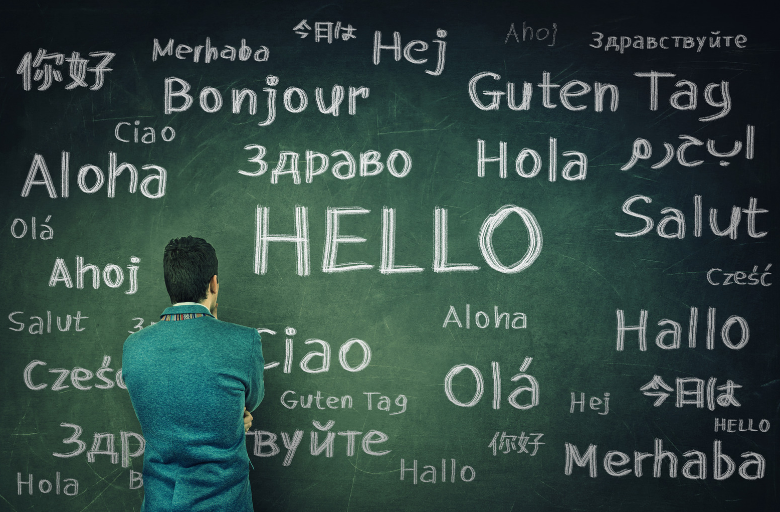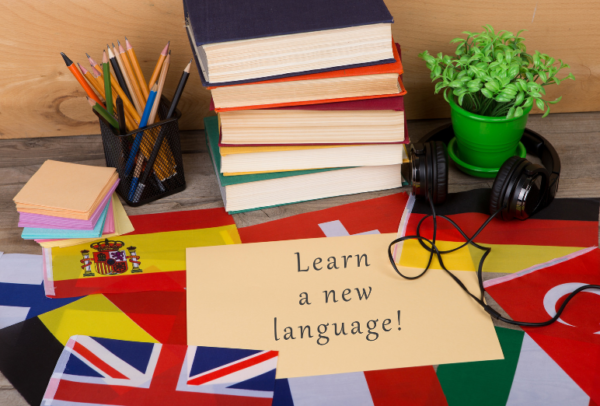Your travel to a foreign country is so soon, and you want to get familiar with its language, so you need the fastest way to learn a new language, don’t worry, we’ve got you covered.
We will give you a step-by-step guide on how to learn a new language in one month.
Learning a new language can be an exciting and rewarding experience.
Whether you want to expand your horizons, travel to a foreign country, or connect with people from different cultures, mastering a new language opens up a world of opportunities.
While becoming fluent in a new language in just one month may seem like a daunting task, with the right approach and dedication, it is possible to make significant progress.
In this article, we will explore practical tips and strategies to help you learn a new language effectively within a month.
Did you know? Learning a new language can increase your brain capacity and power
Learning a New Language in 30 Days: Things to Consider Before Start Learning a new language

Embarking on a language-learning journey requires commitment and perseverance.
Setting a clear intention and understanding the learning process is essential to staying motivated throughout the month.
Before diving into the language-learning adventure, it is crucial to prepare yourself mentally for the challenges and rewards that lie ahead.
Pro Tip: You can speed up your learning speed by improving your IQ level
The Best Tips And Strategies to Learn a New Language as Fast as Possible: 9 Easy Steps

With our 9 easy steps for the best way to learn a new language, you will become familiar with your target language before you know it, so our tips and strategies to learn a new language fast are:
- Learning a new language is easy with time and patience.
- You can become fluent as a native speaker; don’t let others discourage you.
- Be proactive and don’t solely rely on professors.
- Focus on one good language book, not multiple apps.
- Practice daily, and don’t fear making mistakes.
- Watch dramas with subtitles in the target language.
- Create vocabulary lists from shows.
- Keep repeating and practicing with native speakers.
- Immerse yourself in the language and culture by visiting the country.
Set Realistic Goals To Learn a New Language.
While the goal is to become proficient in a new language in a month, it’s essential to set realistic expectations.
Fluency may not be achievable in such a short time frame, but setting achievable milestones will keep you focused and encouraged.
Break down your language-learning goals into manageable chunks and celebrate each small achievement along the way.
Choose the Right language.
Selecting the right language to learn in a month is essential.
Consider your interests, travel plans, or career prospects when making this decision.
Some languages may share similarities with your native tongue, making them easier to grasp, while others may present more challenges but offer unique advantages.
Immerse Yourself in the language.
Language immersion is a powerful method to accelerate your learning process.
Surround yourself with the language as much as possible by listening to music, podcasts, and radio stations in the target language.
Change your phone and computer settings to the new language, and try to think and dream in the language.
Practice Daily in the new language.
Consistency is key to language learning.
Dedicate a specific amount of time each day to practicing the language.
Even short, daily sessions can have a significant impact on your progress.
Create a study schedule and stick to it religiously.
Utilize Language Learning apps.

Nowadays, we have all kinds of technology and apps that can help you in your learning process for a new language.
Language-learning apps are a valuable resource.
These apps offer interactive lessons, vocabulary exercises, and language games to make learning engaging and fun. Some popular language learning apps include Duolingo, Babbel, and Memrise.
Engage in Daily Conversations
Practicing with native speakers or language enthusiasts is invaluable. Seek out language exchange partners, attend language meetups, or join online forums where you can converse in the target language. Engaging in conversations helps improve your speaking and listening skills and provides cultural insights.
Watch Movies and TV shows.
Watching movies and TV shows in the target language is an entertaining way to learn.
Choose shows with subtitles to aid your understanding. Pay attention to pronunciation, intonation, and common expressions used by native speakers.
Takeaway Tip: having a new language in your pocket can improve your communication skills with other people around the world
Read Books and articles.
Reading books and articles in the new language enhances your vocabulary and comprehension skills. Start with simple texts and gradually progress to more complex materials. Highlight new words and phrases and review them regularly.
Join Language Exchange Groups and use language exchange apps.
Joining language exchange groups or conversation clubs can provide a supportive learning environment. These groups often include learners at different levels, allowing you to practice and receive feedback from peers.
You can use apps for this purpose like HelloTalk, one of the best for Ease of communication. This application shines at simplifying communication.
Text and voice messages, audio and video conversations, and even drawings may be used to communicate with your language partners.
And other best language exchange apps of 2023, like Tandem and HiNative.
Learn Basic Grammar and vocabulary.
While focusing on conversational skills, don’t neglect grammar and vocabulary. Understanding the basic grammar rules and learning essential vocabulary will aid your communication and build a strong foundation for further learning.
Use Flashcards
Flashcards are an effective tool to reinforce your memory. Create flashcards with words, phrases, and sentences in the target language and regularly revise them to retain the information.
Write a journal.
Keeping a language learning journal allows you to practice writing and track your progress. Write about your daily experiences, thoughts, and emotions in the new language. Don’t worry about perfection; focus on expressing yourself.
Embrace Mistakes
Learning a language involves making mistakes. Don’t be afraid to speak, even if you’re unsure of the grammar or pronunciation. Embrace errors as learning opportunities and keep pushing forward.
Stay Consistent
As the month progresses, you may encounter challenges or feel demotivated. Stay committed to your language-learning journey and remind yourself of your goals regularly. Consistency and determination will ultimately lead to progress.
Language Learning Timeframes: Top 5 Languages for Quick Reference
Normal people’s ways will take time like
- Spanish: Basic conversational skills in 3-6 months, intermediate in 6-12 months.
- French: Basic conversational skills in 3-6 months, intermediate in 6-12 months.
- Mandarin Chinese: Basic conversational skills in 6-12 months, intermediate in 1-2 years.
- German: Basic conversational skills in 3-6 months, intermediate in 6-12 months.
- Arabic: Basic conversational skills in 6-12 months, intermediate in 1-2 years.
But by following our guide on how to learn a new language in 30 days you can learn a new language faster than the normal people’s time frame.
Conclusion
Learning a new language in one month is undoubtedly ambitious, but with dedication and the right approach from our ultimate guide on how to learn a new language in one month, it’s an attainable goal. Set realistic milestones, immerse yourself in the language, practice daily, and utilize the various resources available to you.
Embrace the learning process, and don’t be disheartened by mistakes.
Language learning is a lifelong journey, and every step you take brings you closer to fluency and cultural understanding.
FAQs
Set achievable goals for basic communication and understanding.
Choose a language similar to your native tongue for faster learning.
Immerse yourself in the language through movies, music, and culture.
Use language learning apps like Duolingo or Babbel for interactive lessons.
Focus on high-frequency vocabulary and essential grammar rules.
Practice speaking with native speakers or language exchange partners.
Create flashcards and review them regularly for better retention.
Read simple texts like children’s books to improve comprehension.
Learn basic travel phrases for practical use.
Dedicate daily time to language learning and stay consistent.
Practice listening through podcasts or language audio materials.
Utilize memory aids like mnemonics to remember new words and rules.
Achieving fluency in one month is highly unlikely, but you can make significant progress and gain essential language skills within that timeframe.
Several language learning apps, such as Duolingo, Babbel, and Memrise, have proven to be effective in supporting language learners.
Daily practice is essential to reinforce your learning and maintain consistency, which accelerates the language learning process.
Both speaking and writing are crucial aspects of language learning. Focus on developing both skills simultaneously to enhance your overall proficiency.
Set achievable goals, reward yourself for milestones, and immerse yourself in the language and culture to stay motivated and engaged.

